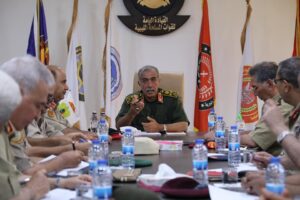NATIONAL SECURITY ISSUES
-
The International Organization for Migration (IOM) has confirmed that more than 1600 illegal migrants have been trafficked between 2020 and 2022, adding that most of them are from Nigeria, Somalia and Sudan. “There were more men than women among the identified victims of trafficking exploited in Libya. However, proportionately women were more at risk of exploitation based on the overall migrant gender demographics in Libya”, the IOM indicated in a report to provide an overview of trafficking in persons as reported by the victims assisted by IOM. It also explained that most common forms of exploitation identified were kidnapping for extortion, forced labour and sex trafficking.
- Special Forces of Western Libya’s Anti-Terrorism Force has captured an Iraqi national in the center of Gharyan south of Tripoli on suspicion of belonging to ISIS. The force said, via Facebook, that the capture came as a result of successful intelligence, within the framework of efforts to combat terrorism and to track down elements suspected of belonging to terrorist organizations. It stated that the person who was arrested named “N. F. L.”, an Iraqi national. The Force explained that the arrest took place in one of the crowded residential neighborhoods in the city, where the suspect resides, and in a professional manner, without exposing people to danger.

- The International Organization for Migration (IOM) said on Tuesday that 446 migrants were rescued off the coast of Libya and sent back to the country from July 17 to 23. So far in 2022, a total of 11,057 migrants have been rescued and returned to Libya, including 698 women and 422 minors, IOM said in a statement. According to IOM, 180 migrants died and 648 others went missing on the Central Mediterranean route this year.
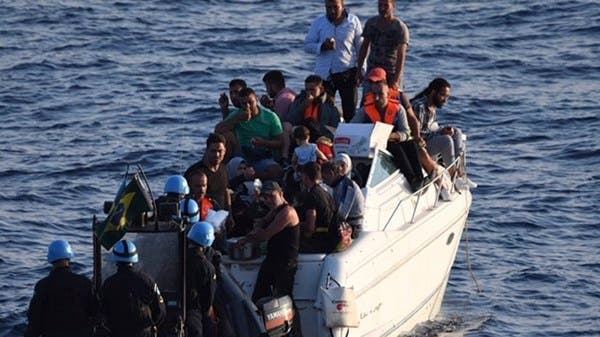
- Interior Ministry of of the Libyan outgoing government said it thwarted an attempt to smuggle a group of migrants across the Mediterranean sea from Sabratha west of Tripoli. The Ministry stated that the Investigation and Arrest Patrols of Police Stations and the Criminal Investigation Department of Sabratha Security Directorate arrested the migrants on the seashore west of the city. It added that it referred the migrants to the Directorate’s office, to initiate an investigation to prosecute the perpetrators of this incident and to collect information to identify and arrest them.
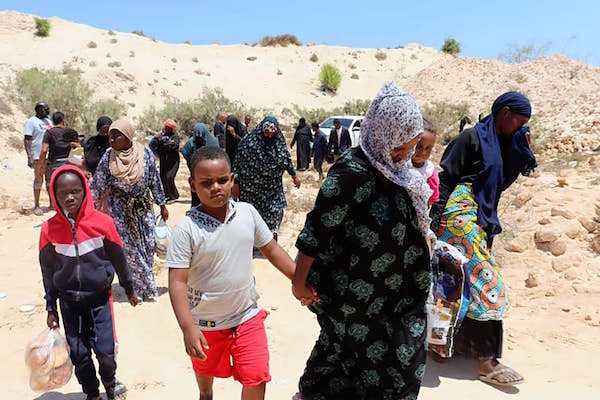
- The status quo in Libya is not sustainable, and it carries risks for the stability of the country, said Nicolas de Rivière, France Ambassador to the U.N. on Monday, July 25. During a briefing about Libya at the Security Council, De Rivière pointed out that “tensions between militias, which are increasing in Tripolitania, are proof of this.” “This crisis must be resolved and a unified government must be established that is capable of conducting the electoral process throughout the country,” he added.
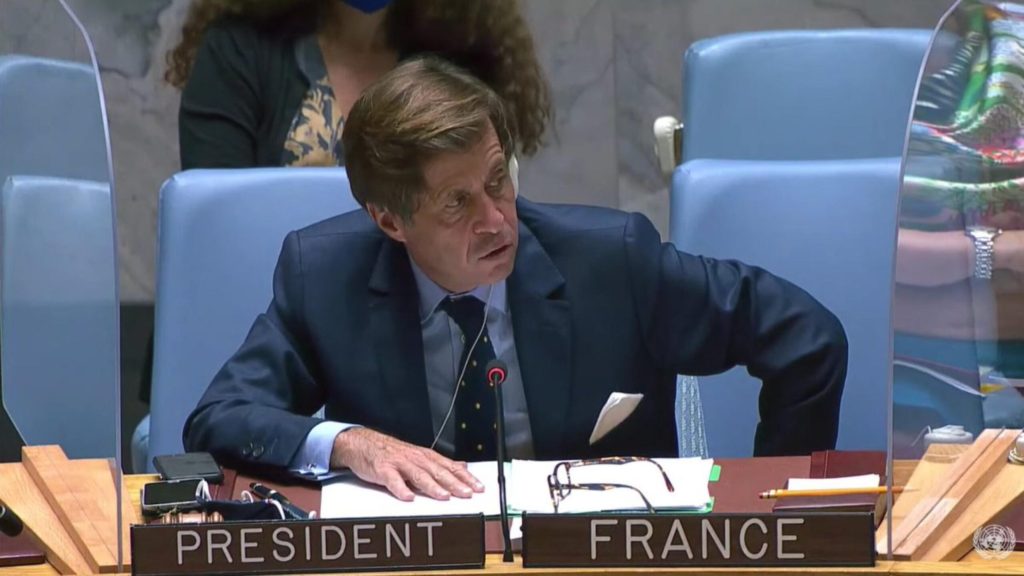
- Italian Ambassador to Libya, Giuseppe Buccino, had a word of warning to Prime Minister Abdul Hamid Dbeibeh during a meeting in Tripoli as he alerted that the status quo in Libya is “untenable”. According to Italian embassy in Libya, the two had an “in-depth discussion” in which Buccino highlighted that the current situation in Libya “may bring the country back to dangerous confrontation.” At least 16 people have been killed and 52 wounded in recent fighting between armed groups in Tripoli. No motive for the fighting was immediately apparent, but it is the latest wave of an on-and-off violence to rock the capital as rival militias, each with their own political affiliations, compete for power.
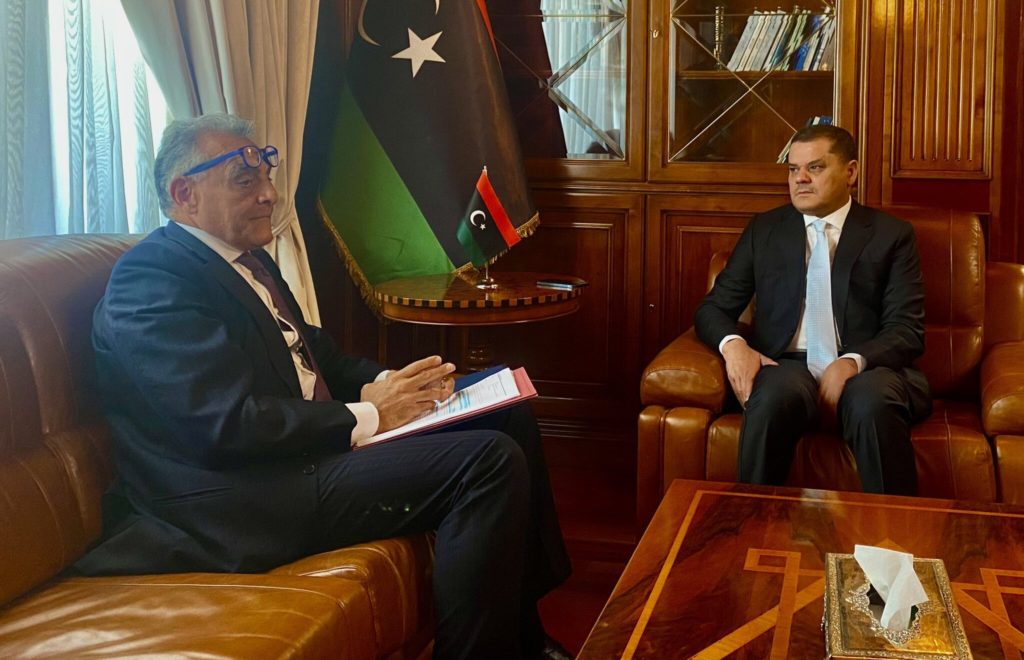
- Chairman of the Presidential Council, Mohamed al-Menfi, was briefed on Monday, July 25, by Lieutenant-General Muhammad Al-Haddad on the security situation in the capital following three days of clashes between armed groups, according to a statement by the council. Al-Haddad, who serves as Chief of General Staff of Government of National Unity’s forces, also discussed with al-Menfi measures to preserve the ceasefire and to ensure protection for civilians as well ass public and private properties, as per the council’s statement.
- Calm has returned after the separate weekend Tripoli and Misrata militia clashes led to 16 deaths and 52 wounded, according to the Health Ministry. Reporting on the crisis that threatened to drive Libya into another bout of civil war, U.S. Ambassador Richard Norland said “I was encouraged in calls this evening with GNU PM Dabaiba and Fathi Bashagha to hear both leaders commit themselves to avoiding violence and finding ways to deescalate the situation in the wake of the recent tragic deaths.
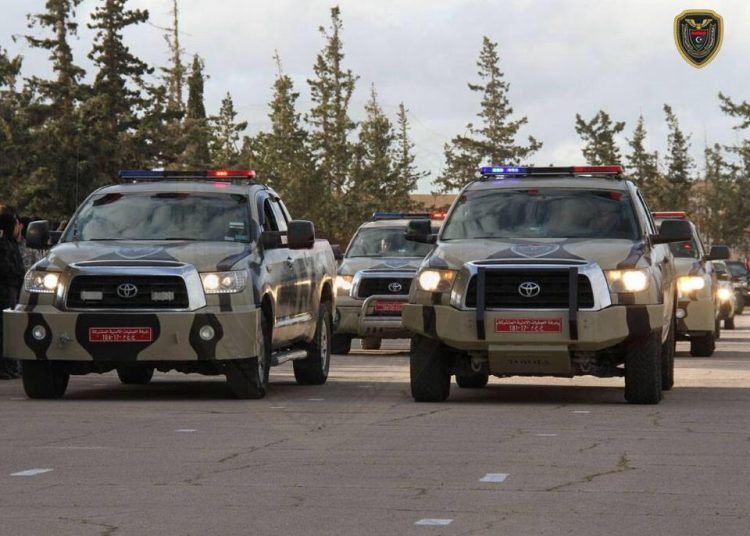
NATIONAL POLITICS AND SOCIAL ISSUES
-
The U.N. Secretary-General’s Special Advisor on Libya, Stephanie Williams, has accused the country’s politicians of being a corrupt class who rather stay in power than leading Libya toward elections. Williams, who rarely spoke in criticism of Libyan politicians during her time in office, made her remarks during an interview with Al-Arabiya TV Channel, which aired on Friday, just two days before she stepped down from her role. “The current political class wants to keep transitional governments ongoing,” she said, adding that same class have “hijacked the political future of Libya.”
- The Former Chief of the Tripoli-based Intelligence Service, Major General Osama al-Juwaili, confirmed that preventing the government appointed by the Parliament from entering Tripoli and taking over its duties “undermines the principle of peaceful transfer of power.” Al-Juwaili said, in a press statement: “We may resort to the use of force if it is used by other parties.” He stressed the need to enable the mandated government to resume its work, stressing that he does not defend people but rather the principle of peaceful transfer of power.
- Osama Al-Juwaili, a military officer based in Tripoli, met on Wednesday, July 27, with several armed groups loyal to outgoing prime minister Abdul Hamid Dbeibeh, a source told The Libya Update. The center of discussion was Libya’s premiership which is in limbo due to rivalry between Fathi Bashagha, who was appointed by parliament to replace Dbeibeh, and the latter who refuses to relinquish power. Al-Juwaili, who backs Bashagha, told the armed groups that Dbeibeh must leave office peacefully to “spare Tripoli the war and loss”, according to the source, who requested anonymity for safety concerns. The source noted that most armed groups “did not appear to be strongly attached to Dbeibeh”.
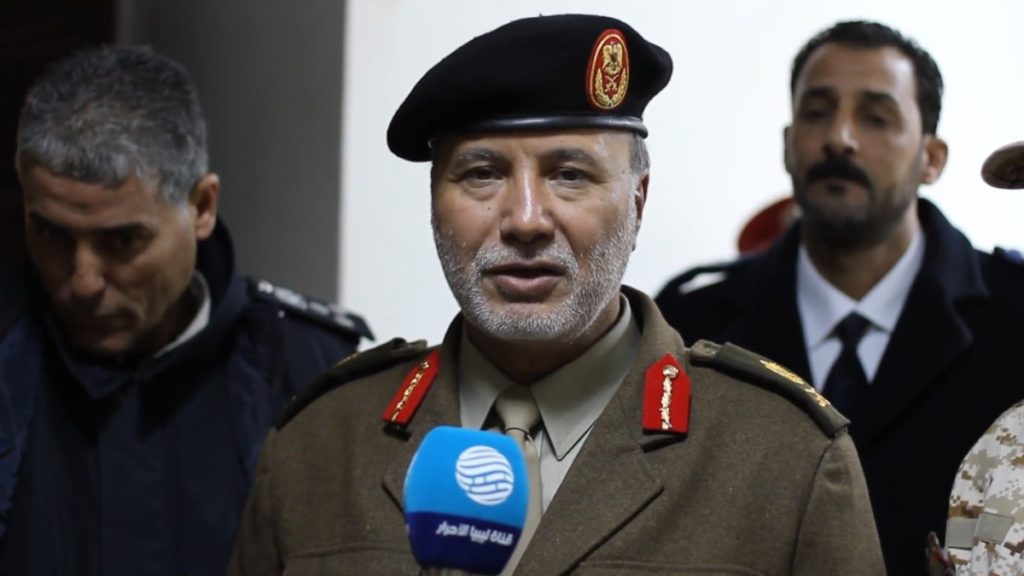
- The United Nations’ priority in Libya remains to facilitate a return to the electoral process, affirmed Assistant to Secretary-General for Africa Martha Pobee in a briefing before the Security Council on Monday, July 25. Pope also pointed out that member states of the council “should keep supporting, and encouraging Libyan counterparts to focus on effectively addressing the key drivers of the political and economic stalemate”. “We count on the members of this Council and the wider international community to continue supporting the United Nations in its efforts to facilitate a mutually agreeable solution which will put an end to the continuing crisis,” she said.
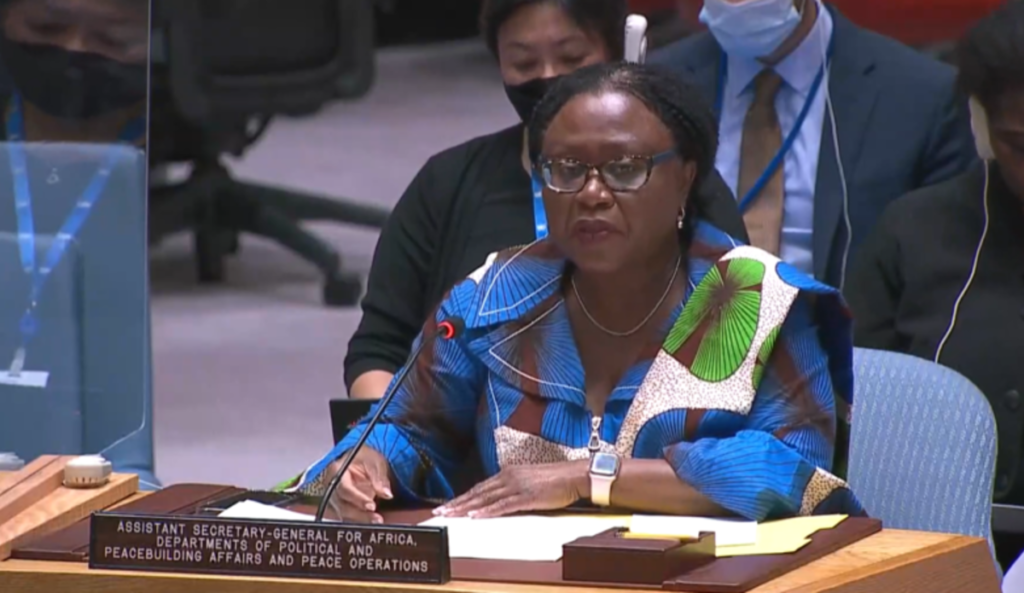
- “Libyan parties need to compromise and agree a pathway to achieve parliamentary and presidential elections,” British Ambassador to the U.N. Barbara Woodward told the Security Council in a Libya briefing on Monday, July 25. Woodward expressed her country’s concern about the recent violence in Tripoli and Misrata, and called for de-escalation. “Preservation of peace has been one of the successes of the past two years,” she said. “There needs to be de-escalation to ensure this relative peace continues.”
INTERNATIONAL RELATIONS
- U.S. Ambassador to Libya, Richard Norland, offered his praise for the work of the 5+5 Joint Military Committee during a meeting with one of the committee’s members, Mohamed Haddad, Chief of Staff of forces loyal to the Tripoli-based government. “Those responsible for the militia clashes in recent days would be wise to follow the example set by General Haddad and others: a resounding “no” to renewed armed conflict,” Norland was quoted as saying by the U.S. embassy via Twitter.
- The Italian parliament voted on Wednesday, July 27, to authorize the extension of “assistance to the Libyan institutions responsible for controlling maritime borders”. The vote, which was held by the parliament’s Foreign and Defense Committees, was met with opposition from the country’s Democratic Party. Explaining the rational behind their opposition, most Democratic lawmakers cited the persistent abuse of migrants at the hands of Libyan Coast Guard.
-
UK Embassy in Libya said British delegation discussed with Libyan Foreign Minister Najla Mangoush importance of Libyan-British cooperation and how UK can best engage in Libya and build on historic relationship. “Thank you to Najla Mangoush for hosting us yesterday in Tripoli. Discussed importance of cooperation and how UK can best engage in Libya and build on our historic relationship,” the Embassy tweeted. British Embassy had said that UK Business representatives held a constructive meeting with the Tripoli Chamber of Commerce and Industry.
- International monitors of the Libyan ceasefire will hold a meeting the 5+5 Joint Military Committee and the Libyan monitors in Sirte in early August, the United Nations announced on Monday, July 25. Addressing the Security Council during a Libya briefing, the U.N. Assistant to Secretary-General for Africa Martha Pobee said the purpose of the meeting in Sirte is to “finalize a proposed plan for the withdrawal of foreign forces and mercenaries.” “On this occasion, they also intend to activate a Joint Operations Room,” she added without elaboration on the nature of this operation room.
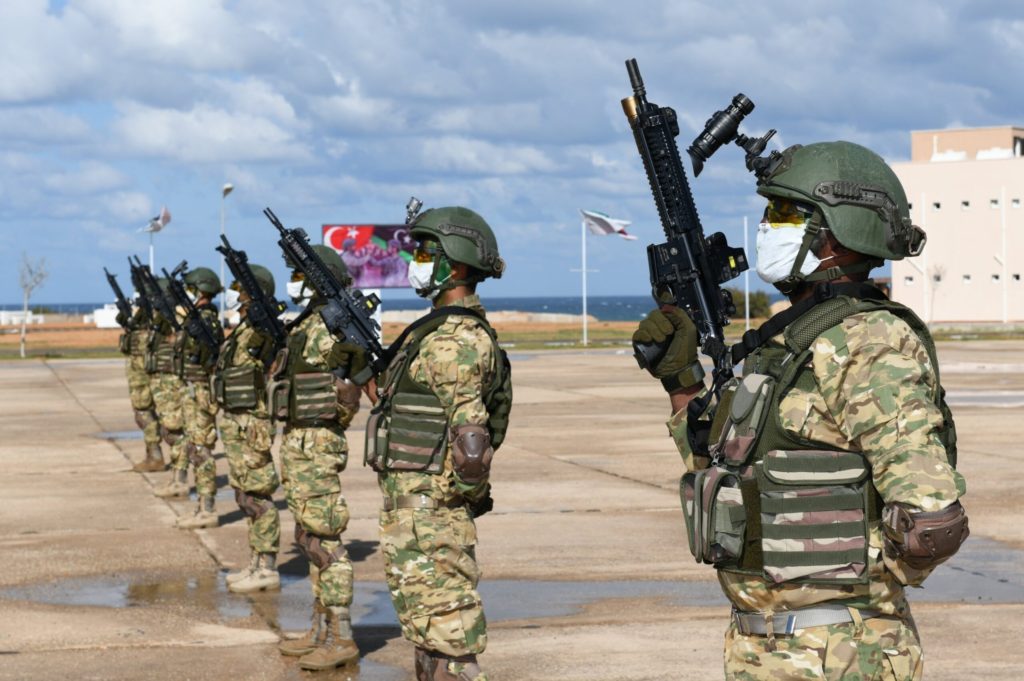
- Russia has welcomed on Monday, July 25, an initiative by the African Union to organize a conference for Libya’s national reconciliation “in the near future. The announcement came during a joint press conference between Russian Foreign Minister Sergey Lavrov and the Congolese counterpart Christophe Lutundula Apala in Brazzaville. Lavrov noted that his country welcomes the initiative which would be organized by Congolese President Sassou Nguesso who is also currently serving as chairman of the African Union High Level Commission on Libya.
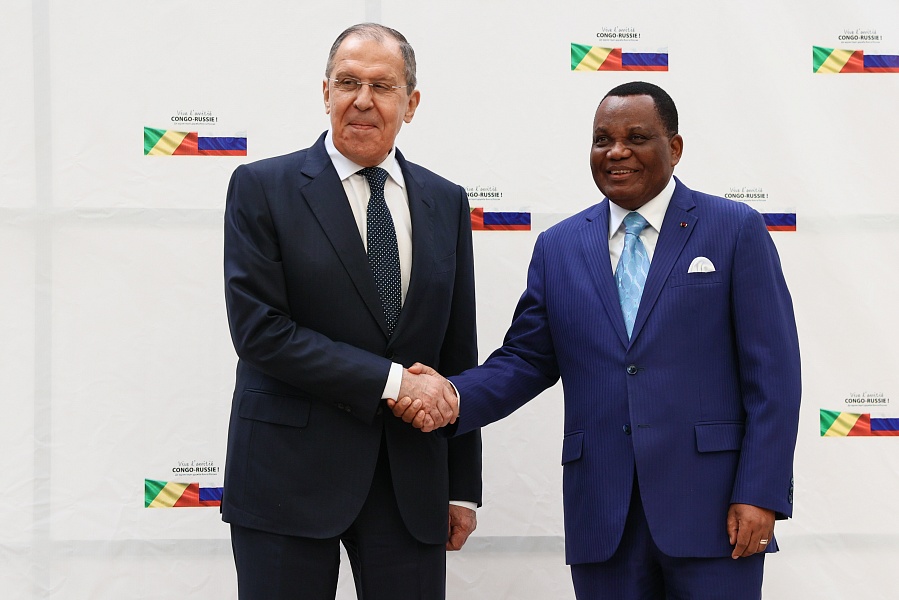
- Italian Foreign Minister Luigi Di Maio stressed that Libya will always be one of the main priorities of Italian foreign policy. Di Maio added, according to Italian Nova news, that Libya is considered a natural hub in the Mediterranean. He explained during a parliamentary briefing before the joint foreign and defense committees of the House of Representatives and the Senate that the stability of Libya means the stability of the Mediterranean. The Italian Foreign Minister stressed that the appointment of a new UN envoy to the country would be critical.
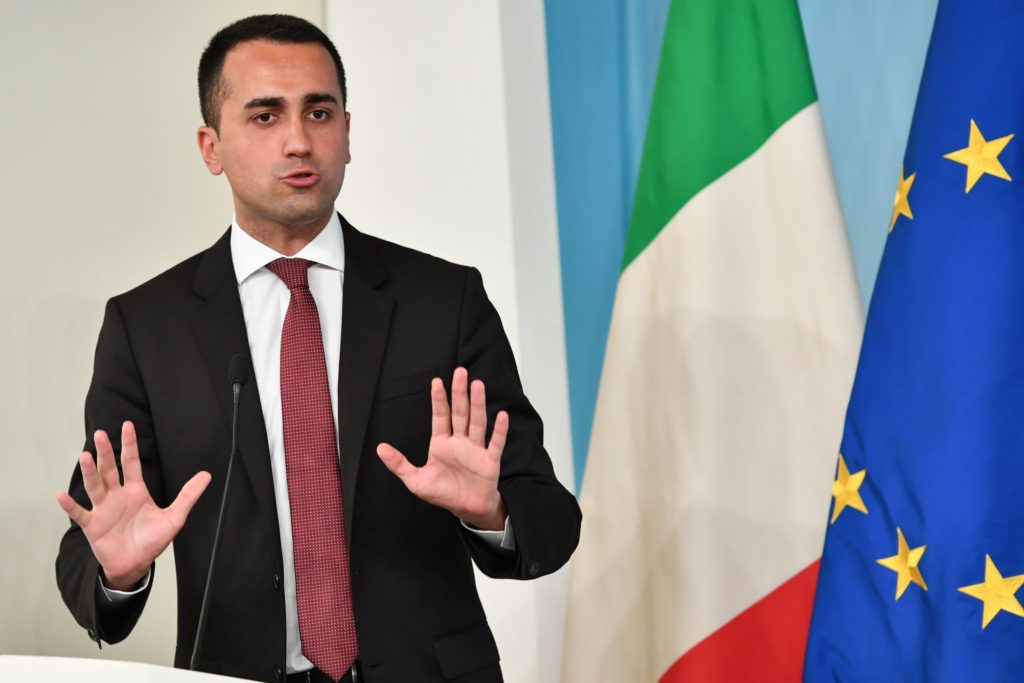
- The Japanese embassy is to resume its work from Tripoli soon. The revelation came during the meeting between Libya’s Foreign Minister, Najla Mangoush, and the Japanese Chargé d’Affaires, Masaki Amadera in Tripoli. The Libyan Foreign Ministry reported that Amadera expressed his happiness that the logistical arrangements necessary to resume his work from Tripoli in ”the coming period” are near completion. Amadera stressed the strengthening of cooperation and strategic partnership between the two countries, especially in the technological and economic field with Libya, and invited Minister Mangoush to participate in the 8th Tokyo International Conference on Development, which will be hosted by Tunisia on 27-28 August.
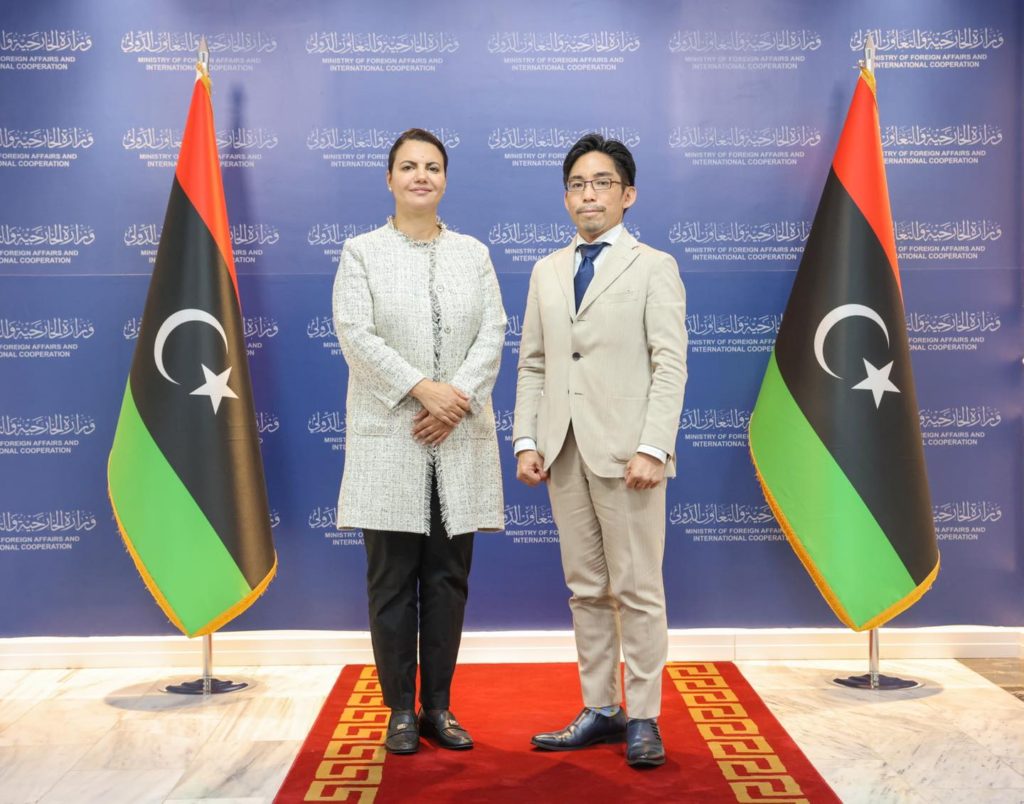
- The Chief of Staff of forces loyal to the Government of National Unity, Mohamed Haddad, will travel to Benghazi on Wednesday, July 27, to meet his counterpart of the Libyan National Army (LNA), Abdelrazek Nadori, according to Italian news agency Nova. Citing unnamed Libyan sources, Nova reported the two senior military officers will hold an extended meeting in the presence of the members of the 5 + 5 Joint Military Committee from the east and west of the country.
